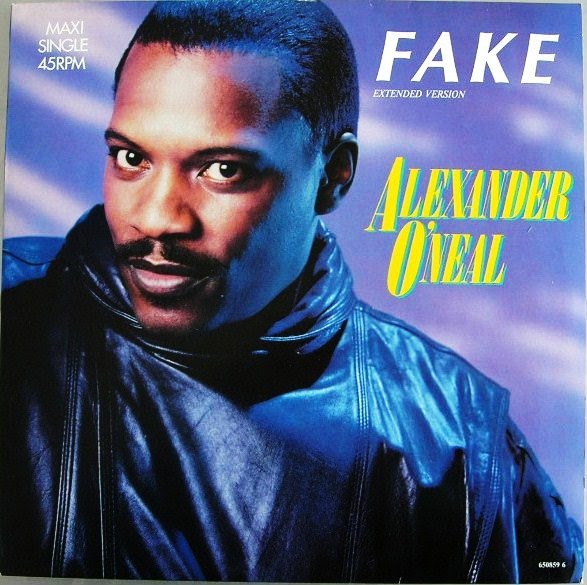Last year, I joined Popdose‘s Jeff Giles and Robert Cass for a column called “‘Face Time,” in which we discussed essential (and some non-essential) cuts in the catalog of Kenneth “Babyface” Edmonds, one of the most prolific singer/songwriters of the ’80s and ’90s. ‘Face and his partner Antonio “L.A.” Reid were one of the big 3 production teams that ruled pop and R&B during that era. There was also Teddy Riley and his New Jack Swing camp, and perhaps most notably, Minneapolis’s James “Jimmy Jam” Harris III and Terry Lewis. The former members of Prince offshoot band The Time turned out to be legends in their own right, composing and producing hits for a who’s-who of the music industry and proving to be as (if not more) influential than their purple-clad benefactor.
So in 2014, the three of us (and two new team members, fellow Popdose editor/Popblerd podcast co-host Michael Parr, along with badass co-conspirator Dr. Zack) are back to talk all things Flyte Tyme.
Now, can I get some nasty bass?
Alexander O’ Neal-“Fake” (Buy on Amazon mp3)
Written & Produced by Jam & Lewis/From Hearsay (1987)
MJ: First observation (and most obvious one): Jimmy & Terry wanted to give Alex a pop smash badly enough that they ripped off the musical bed of one of their own creations (“Nasty”) for this. Not the first time they did it, not the last time they did it, and not even a bad thing that they did it, because…
Second observation: This song is slammin’. If you put this and “Nasty” head to head, I’m honestly not sure which is the better song.
Also, if this song was released today, womens’ groups would be up in arms.
JG*: Not only did they rip themselves off, they did it when “Nasty” was still fresh in everyone’s minds — “Fake” was released in the summer of 1987, and was succeeded at the top of Billboard’s Hot Black Singles chart (#thasracist) by Janet’s “The Pleasure Principle.” Wikipedia says “Fake” was recorded in June of ’87, but I wonder if that’s really accurate. I’d be interested to know a little more about how these two songs really came together — if Jam & Lewis always intended to produce an answer track for “Nasty,” or if, as Mike says, they just took what seemed like an obvious opportunity to piggyback O’Neal onto an earlier hit.
 Either way, I guess it worked. I had no idea this was O’Neal’s biggest single. Seems a little sad to me, in a way, that he’d achieve his biggest success with an echo of someone else’s hit, but I suppose the answer song is a rich tradition in its own right. I think it’s probably also worth noting that this arrangement popped up yet again in 1997, when Jam & Lewis lifted a bit for a segment of Patti LaBelle‘s “When You Talk About Love” (which wouldn’t exist without Al Green’s “Love and Happiness,” so…interpolation is where it’s at, I guess).
Either way, I guess it worked. I had no idea this was O’Neal’s biggest single. Seems a little sad to me, in a way, that he’d achieve his biggest success with an echo of someone else’s hit, but I suppose the answer song is a rich tradition in its own right. I think it’s probably also worth noting that this arrangement popped up yet again in 1997, when Jam & Lewis lifted a bit for a segment of Patti LaBelle‘s “When You Talk About Love” (which wouldn’t exist without Al Green’s “Love and Happiness,” so…interpolation is where it’s at, I guess).MJ: I’m thinking it may have happened in reverse.
They heard the album, decided there wasn’t a big pop or dance single on it (which, as good as “Hearsay” is, is probably true) and sent Alex, Jam and Lewis back into the studio to write an obvious hit?
Regardless of how it was inspired, “Fake” is a fucking jam. And also fits nicely into the narrative thread that the “Hearsay” album follows.
MJ: Indeed.
Sucks that Alexander didn’t build on this success.
MJ: Not really. There’s two theories about why Alexander didn’t make the cut:
Z: Yeah, I mean I love Morris Day, but it’s all about the image/performance; O’Neal definitely has a higher level of vocal talent.
The theory of an Alexander O’Neal-fronted Time being ‘extra funky and blow[ing] Prince clear off the stage” is an interesting one, especially given that this was often the case when on the Triple Threat tour in 1982-1983, when the Time (with Jam and Lewis still in tow) opened for the Revolution and upstaged them more often than not.



2 comments
John says:
Feb 12, 2014
I’m sure in the grand scheme of things that Alex is happy about being jettisoned from the Time as he became a huge star, especially in the UK. I loved this album start to finish, and I think the structure of this record lead to a similar narrative on Vesta Williams’ “4 U” album the following year. “Sunshine” is a quiet storm classic!
MJ says:
Feb 13, 2014
Whoa…you brought up Vesta. #deep. I agree with you, though. Most of the best Jam/Lewis albums (or at least the ones they did start to finish) were concept albums. I’m curious if they’d get away with something like “Hearsay” today. I think women’s groups would be up in arms.